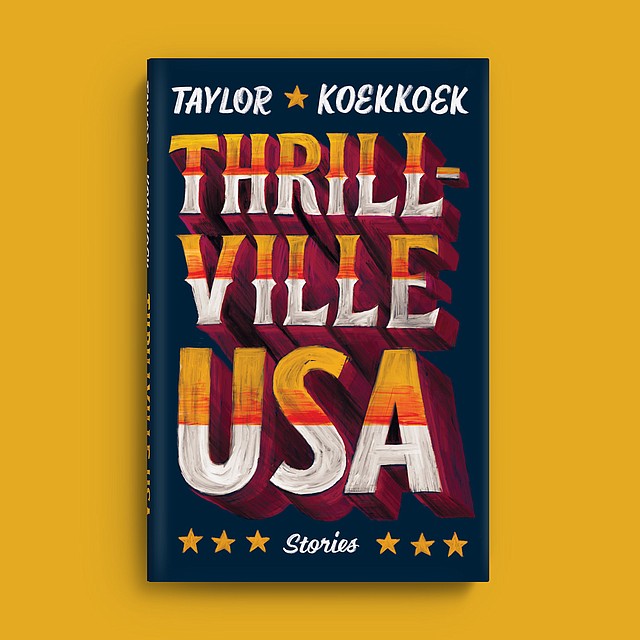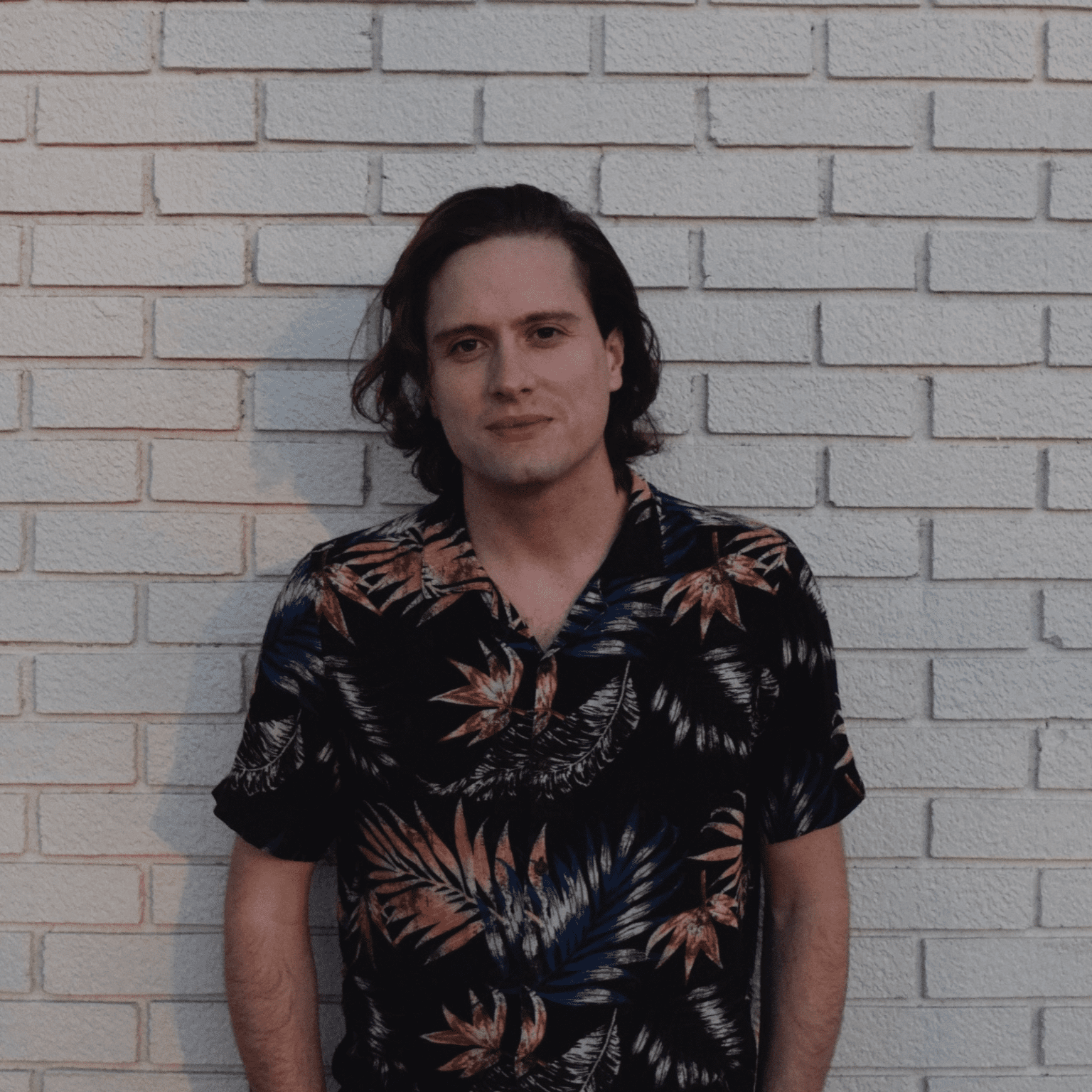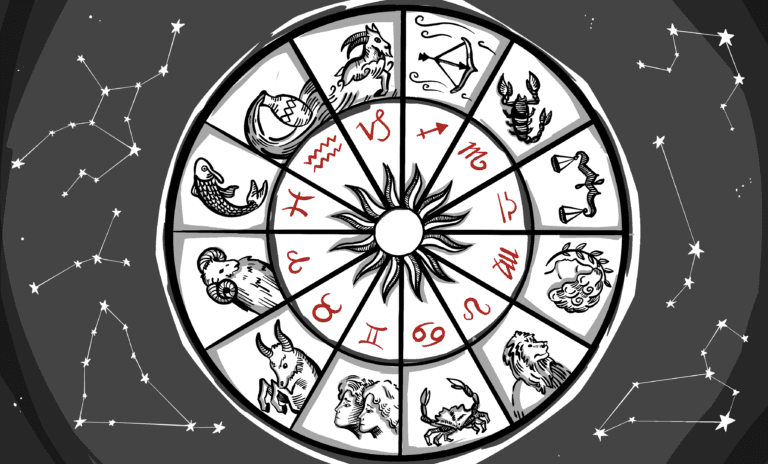After 20 years teaching in the creative writing classroom, your friendly critic eventually learned, among other things, that the workshop table was not very good at addressing two kinds of work: the strange and the excellent.
About the strange, we couldn’t say much at all. About the excellent, we could offer just dumb admiration and, sometimes, description, of which only the latter was of any use to the writer. Good writers almost always know they’re good and tend to find it a little awkward to be told about it in person. They feel it’s unkind to others.
So, in the safe confines of print, where I won’t be embarrassing Portland-based author Taylor Koekkoek to his face, I can tell you that you will not find a better debut collection of stories than his book “Thrillville USA” — not this year, not any year, and probably not for a long time to come.
This collection ranks with the best I know, counting backward through the decades, and if the gods are good, Koekkoek (pronounced COOK-cook) will win all the prizes and live his remaining days in glory, producing more work (on his own schedule, no rush) for our delight. He was raised around these parts and writes about us, and our places, as well as anyone ever has.
All nine stories in the book are gentle, generous, wry, surprising and fluent. (Imagine Raymond Carver if he’d known more kindness early on, if his enlarging sweetness had been allowed to flower sooner.)
Koekkoek’s people, as he told me in a recent email, are “all somewhat imperfect: selfishness, panic, guilt, get in the way of their better judgment. But who can throw stones at that? In my stories, nobody goes to hell when they die. Everyone goes to heaven, even if they’re chastised a little at the gate.” After all, he said, “without flaws, there’s no occasion for grace.”
In “The Artist’s House,” a young couple, both writers, navigate their unbalanced condition — one is a rising star, the other a sinking stone — while arriving at an Airbnb along the Deschutes River. The hosts are there, and are they writers, too? And are they to be pitied or made greedy use of?
A long, slow-motion cataclysm of shame and redemption follows. The house is charming, teeming with art and books, laden with memory and faded ambition, and brings forth both wickedness and decency from its guests. As with any encounter that will matter a great deal later, its meaning is only partly obvious at first. “Shouldn’t it be beautiful, then,” the narrator asks herself, wandering the house, wondering about her host, “the manifestation of her interior life, of any interior life? Or should it have made me squeamish the way it did?”
 In Koekkoek’s stories, the ending is never quite where you think it is — and is likely not quite where the author originally placed it. (Image courtesy of Simon & Schuster)
In Koekkoek’s stories, the ending is never quite where you think it is — and is likely not quite where the author originally placed it. (Image courtesy of Simon & Schuster)
Like “The Artist’s House,” “Wreck” features a moderately down-on-his-luck young man, here showing his brother-in-law — a successful doctor and a resoundingly good person — the ropes of mountain biking on a trail near Burns, Oregon. A wreck and a reckoning follows, but not until the story itself winds and switches back, plummeting and pivoting, arriving at a series of unexpected viewpoints before rolling, with a final sentence that will give you chills, at last home.
And “The Flight Instructor” — another wonderfully long, winding story, with more people ending up in harm’s way. But all the dramatic menace and failure, gripping as it is, isn’t the heart of the action. The real point is how these events come to influence things to come, years down the road. “I think we hardly realize it, until afterward,” the narrator recognizes, eventually, “how tenuously our life is trussed up, how flimsy the whole thing is.”
In all of Koekkoek’s stories, and especially these three, the material is hefty, shifting, purposeful, but the language is deft and light, the moment-to-moment handling of the action is swift and surprising, the point of view limber and smart. And the ending is never quite where you think it is — and is likely not quite where Koekkoek originally placed it.
“I usually have an ending in mind,” he told me, “but I’ll just as usually find myself trying to write past that.”
Past that, and into a new, ever-widening space. Because a very good short story will nearly always feel holographic: appearing much bigger than it is, seeming to convey a great deal more information than it actually contains. This is not just, as the cliché goes, a matter of selecting the telling detail. It is rather about delivering the familiar sense of being alive and at large in a working brain, that rich infinity housed within a finite skull, traveling along through the weird and bountiful world. That is the work of the writer, to make the limitless dimensions of that interior space palpable to the reader.
For we do intuit, in our very best moments, that we are, as conscious beings, a part of something quite grand and beautiful and whole, something mysterious that rides just beyond our grasp — and not just that we are a part of it but that we are also crucial to it, and that we also, somehow, contain it. Every little independent fact, when turned just the right way, becomes a story; and that story, when turned just the right way, becomes a representation of one’s enormous, interconnected life.
This is Alice Munro’s gift, and Chekhov’s, and the gift of the other greats. The reproduction of this feeling — of being embedded deep in one’s magnificent, ridiculous existence — is one of the highest aims of the short story. It is probably why the form survives even in this addled, distracted era, because no other art we have can perform this trick quite as reliably.
Well, so, add Koekkoek to the list of those who can perform that trick. Buy this book, in many multiples, and share it out to the people you think the most of. And be grateful the world still makes them like it used to: excellent, and for the ages.
Michael Byers is on Twitter at @TheMichaelByers. He lives on Lummi Island.




